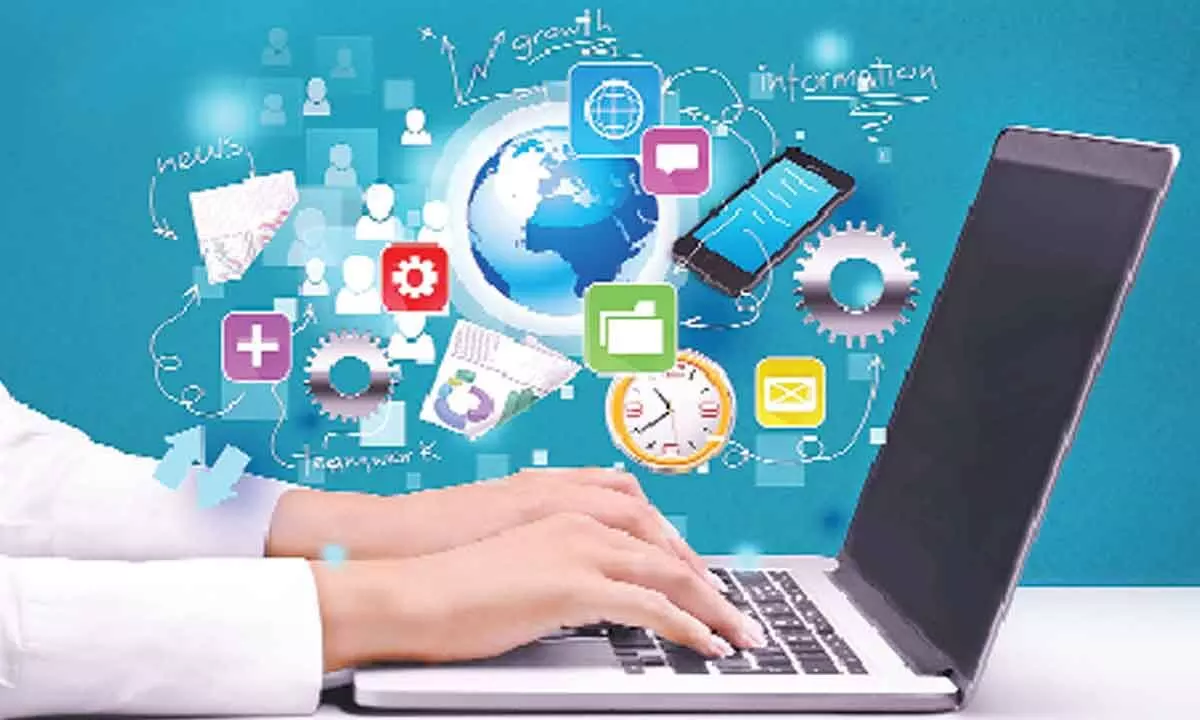Rise by Six: Your Daily Dose of Inspiration
Explore insights and stories that elevate your day.
Classroom of the Future: Where Science Fiction Meets Reality
Explore how sci-fi visions are shaping tomorrow's classrooms. Discover innovations that are transforming education into an exciting reality!
Exploring the Technologies Shaping the Classroom of Tomorrow
As we delve into the future of education, technologies shaping the classroom of tomorrow are rapidly evolving, transforming traditional learning environments into dynamic, interactive spaces. Innovations such as virtual reality (VR), artificial intelligence (AI), and the Internet of Things (IoT) are not just enhancements but integral components of modern education. For instance, VR allows students to immerse themselves in global history by virtually visiting ancient civilizations, while AI can personalize learning experiences to cater to individual student needs, ensuring that no learner is left behind.
Moreover, the rise of cloud computing and collaborative tools is making education more accessible than ever. Students can now engage in real-time collaboration from different parts of the world, breaking down geographical barriers. Classroom management systems powered by data analytics are also providing educators with insights into student performance, enabling them to tailor their teaching strategies effectively. As we continue to embrace these technological advancements, the classroom of tomorrow is set to become a more inclusive, engaging, and efficient space for learning.

How Virtual Reality is Transforming Education: A Look into the Future
Virtual Reality (VR) is revolutionizing the educational sector by providing immersive learning experiences that traditional methods cannot achieve. From virtual field trips to interactive simulations, VR enables students to engage with educational content in a way that enhances understanding and retention. For instance, a history class can transform into an exciting journey through ancient civilizations, allowing students to explore relics and landmarks in a 3D environment. This innovative approach not only captivates learners but also fosters a deeper emotional connection to the material, making education more relatable and impactful.
The future of education is bright with the integration of virtual reality technologies. As more institutions adopt these tools, students will gain access to personalized and adaptive learning experiences. For example, VR can offer tailored lessons based on a student's learning pace, which could significantly improve their academic performance. Moreover, in subjects such as science and medicine, VR simulations can provide hands-on practice in a safe environment, preparing students for real-world applications without the associated risks. As we move forward, the role of virtual reality in education will likely expand, shaping a generation of learners who are not just consumers of information but active participants in their educational journey.
Are We Ready for AI Teachers? The Future of Learning in the Digital Age
The rapid advancement of technology has sparked a significant debate regarding the role of AI in education. As we explore the question, Are we ready for AI teachers?, it becomes clear that integrating artificial intelligence into the classroom could revolutionize the future of learning. AI teachers have the potential to provide personalized education tailored to each student's needs, enabling a more engaging and effective learning experience. However, this raises essential questions about the efficacy of AI in nurturing creativity and critical thinking, skills that are paramount in today's digital age.
In considering whether we are ready for this shift, it is vital to evaluate both the benefits and challenges posed by AI teachers. Strengths of AI in education include:
- Adaptive learning technologies that tailor content to individual learning paces.
- 24/7 availability for students seeking assistance outside traditional classroom hours.
- Data-driven insights that help identify learning gaps and suggest targeted interventions.